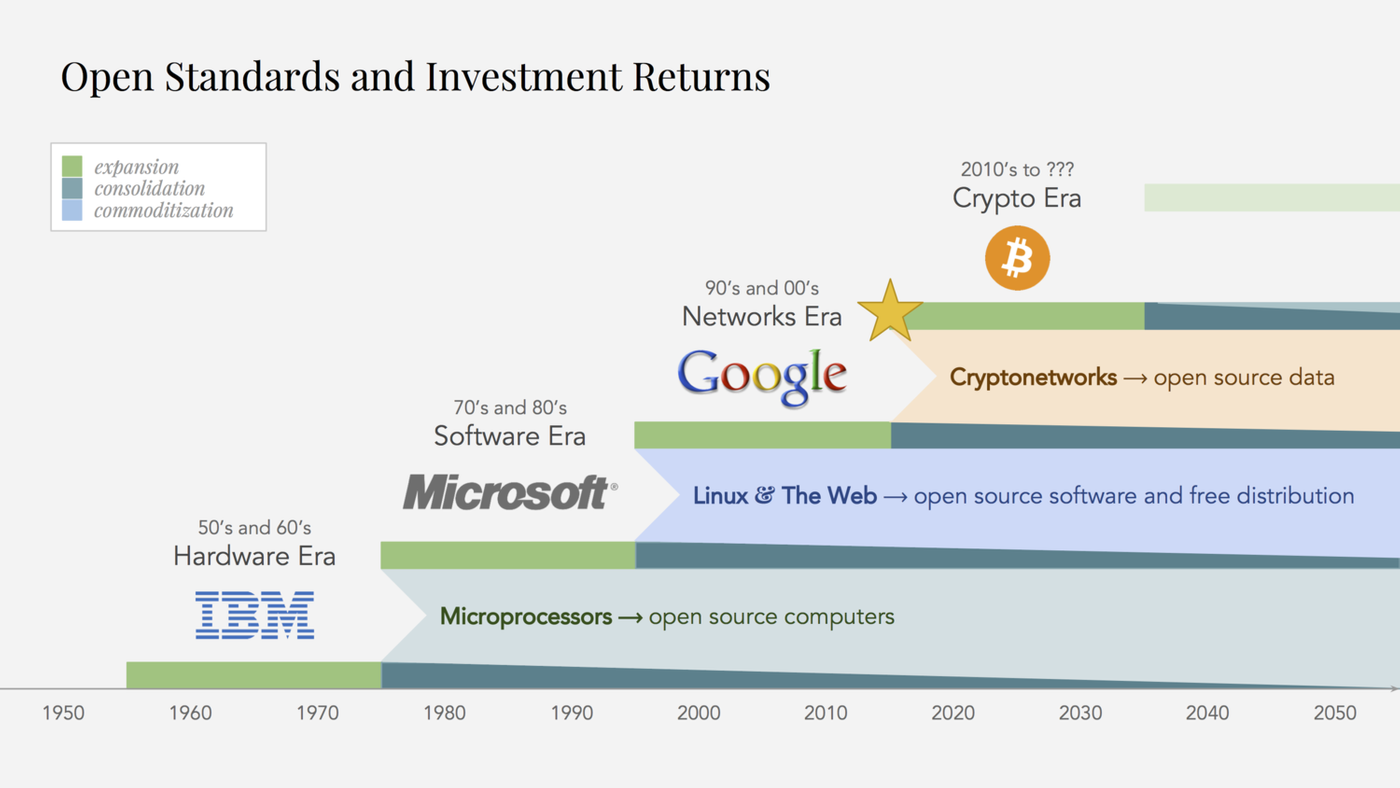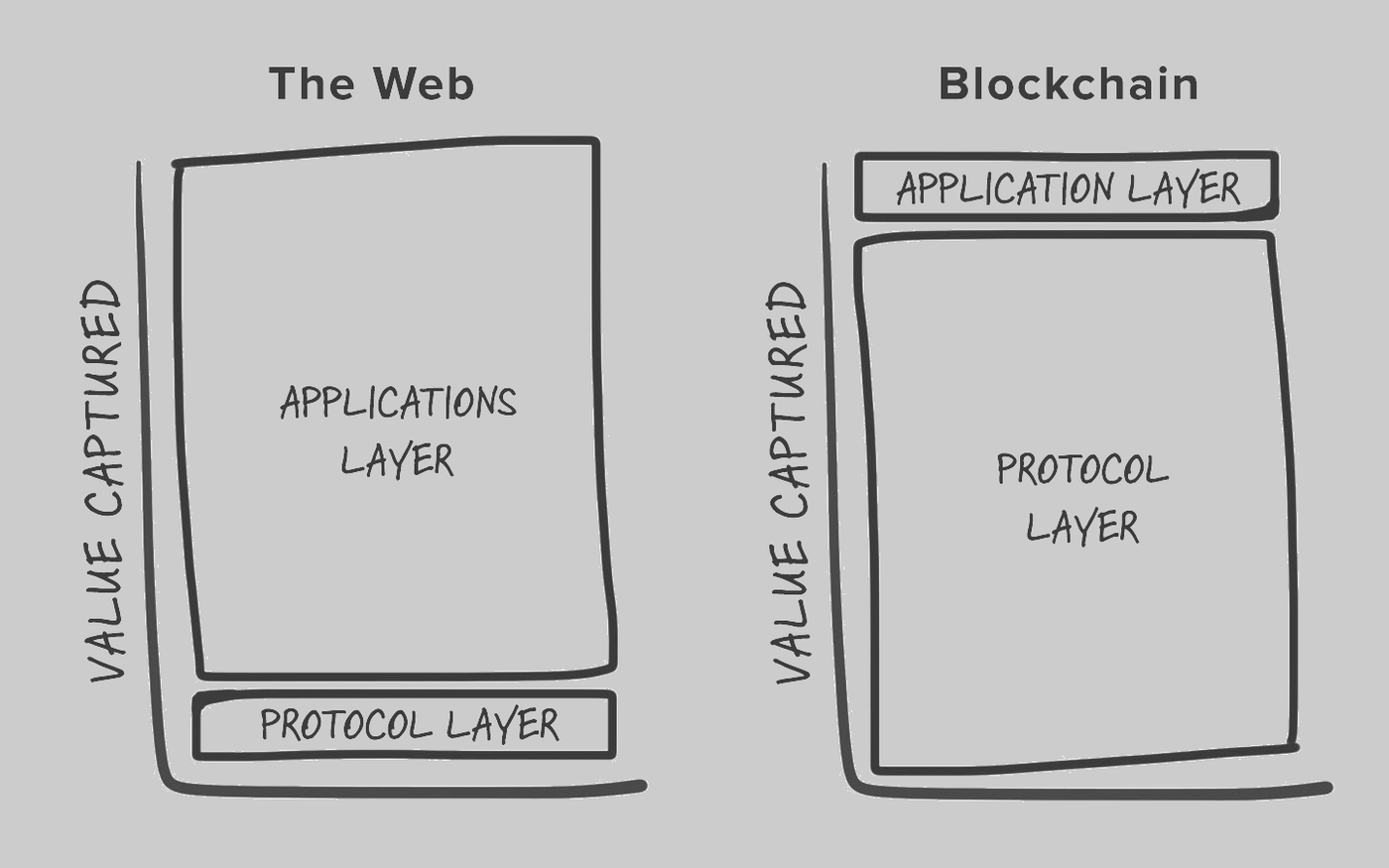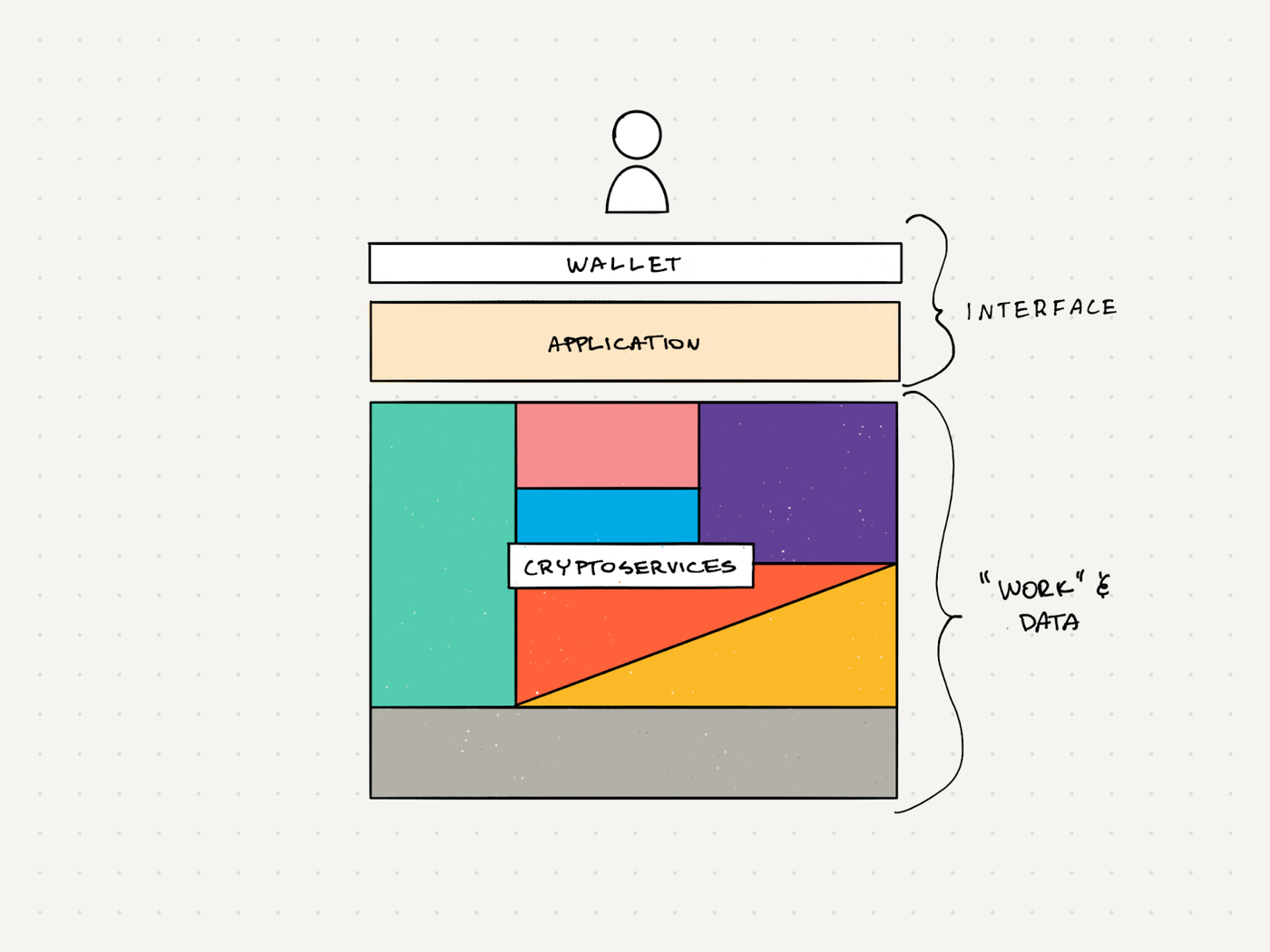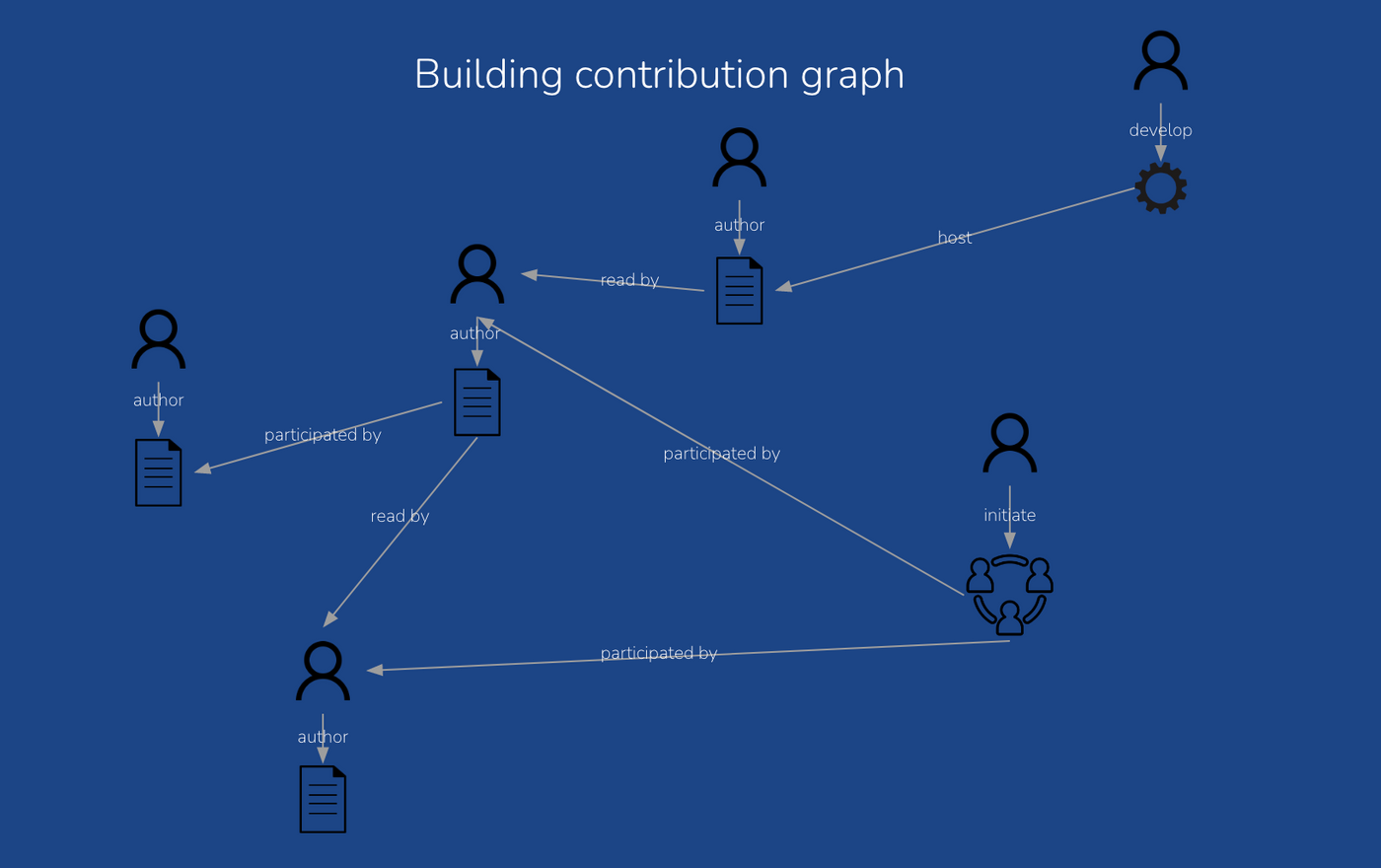
人类迷惑行为观察员
【Web3 学习笔记】#5 Information wants to be free. Power wants to concentrate.
This article discusses information, the illusion of information ownership and how we might decentralize power. The key word is power. In this article, it sometimes refers to political public power, and sometimes refers to the power of capital to aggregate. It can also mean energy that an individual can generate. I didn't come up with an accurate Chinese word to correspond to, so I used power to refer to it directly. The article is divided into three sections:
- Information wants to be free, but...
- Does my information belong to me?
- Social protocol design to decentralize the power
Information wants to be free, but...
In these years, our pan-information technology practitioners are flooding the streets. I am too lazy to ask "what kind of work do you do" when I meet people now. Anyway, there are just a few types: programmers, data engineers, product managers, designers... And after a few more chats, there will be no more hi points to continue the topic (No offense 😅) Software is eating the world. We are all industrial workers .
This state of little interest is mostly my own problem, a bit of industry disillusionment. The company I work for started out as open source software, and it has to package an enterprise version that is not easy to use in order to sell it for money; it is obviously a head practitioner of agile development, and I have to provoke people who do not have agile soil at all. Large corporate clients. Engulfed by capital, it has grown rapidly, watching it rise up, watching it entertain guests, and watching it collapse.
It was the Web 3-related issues that rekindled my passion for information technology. What is this passion? I asked myself, and devoted myself to this business, based on a few beliefs: information is to break through the block; knowledge is to be shared and further discussed and developed. Openness, collaboration, equality, reciprocity, is the way I want to live. Technology should serve people, not enslave them. Every time a new technology is implemented, it brings me new hope—even if every hope will be wiped out by another round of capital enclosures.

From the moment the Internet was born, the pioneers have been adhering to the belief in open information to promote the development of technology. However, the operational logic of capitalism always leads technology from openness to monopoly, and then waiting to be overthrown by the new generation of technology. From Web 1 to Web 2, and from Web 2 to Web 3, each round of information dissemination and upgrading must go through such a cycle (see: Information Technology Market Cycle for details). The paradox of the information society described by Steward Brand will not disappear as long as the incentive-feedback model of capitalism remains unchanged:
On the one hand... information sort of wants to be expensive because it's so valuable... on the other hand, information also wants to be free because the cost of getting it out is getting lower and lower all the time. So you have these two things fighting against each other.
Since free can mean both "free" and "freedom" in English, this sentence becomes very terrifying. Does the information itself want to spread freely, or does it want to hide in encrypted hard drives for sale?
Steward Brand was in the 80s when he said the above. Ten years later, he co-founded the Long Now Foundation , an organization that uses "ten thousand years" as a measure of time to focus on the fate of mankind. Listening to the symposium they have organized over the years, I think that information wants to be expensive is temporary, because expensive is a concept under capitalism, and capitalism is already being countered by itself. Looking back after 10,000 years, paying expensive information access fees or the reading experience that is constantly interrupted by advertisements may be just a small wave in the tide of history. So now I want to change the old man's words:
Information wants to be free. Power wants to concentrate.
This sentence is the same as the original words of the old man above. What information do you know? What does Power know? The pulling behind this is actually human will.
No matter what kind of social system, people with more power always want to have more power. In a capitalist society, you will see the accumulation of capital power - so once information shows economic value, it will become expensive. Similarly, in a bureaucratic society, public power will continue to gather - so once information hinders the implementation of public power, it will become the object of castration.
But if information has a personality, it wants to be free. Because the more information spreads, the more it can grow and grow. Information breeds infomration. The current human social structure does not allow it to be free.
This antagonism will probably remain in my lifetime, but every revolution in information technology weakens it a little bit. And I am happy to devote myself to this competition again and again, and I will stand on the side of "information wants freedom" time and time again.
Does my information belong to me?
Personal information is a wonderful thing: it seems like it should belong to me, it should be classified as my privacy, it should be for me. But it is also social, and all attributes about "me" only have meaning in the exchange of information with others.

- I'm quiet - relative to my more active friends
- I talk a lot - relative to my more introverted friends
- My address - to online shops and friends who stop by
- My Sexual Orientation - Tell Your Date
- My driving record - registered by vehicle management
- My Year of Birth - Proof for Minor Restricted Merchandisers
- My Career History - What Headhunters, Employers, Partners Need to Know
- My Income - Notify Lending Bank, Credit Guarantee Agency
- ...
That is to say, the identity concept of "I" is very discrete on the one hand, and each of its attributes is meaningful only in the community relationship corresponding to this attribute; on the other hand, the uniqueness of "I" is precisely because It is that I am a unique intersection of these many different social functions.
Now that these personal information is becoming more and more digitized, when the application conducts online shopping, social networking, tax payment, loan and other activities on the Internet, it often relies on a trusted third party to verify our identity. Usually this "third party" is handled by state agencies or large software applications like Facebook and Google - the vast majority of our personal information is consciously or unconsciously entrusted to them for custody. A large amount of information is concentrated in the hands of individual institutions, forming information centralization.
When we as individuals feel threatened, to escape the manipulation of centralized powers, we need to completely dismantle all of our identity attributes: on Facebook, on LinkedIn, on Twitter, on Matters, on WeChat...using completely unrelated IDs, Play different characters, say different things, and make different friends. But as long as you don't have a split personality, it's actually hard not to want to connect and connect these various identities. We continue to face such a dilemma: splitting our identities will feel like we have a split personality, while integrating our identities is afraid that our personal information will be oppressed by information centralization.
This question, blockchain investor Joel Monegro proposed the concept of a Fat Protocol in 2016

He said that in the era of Web 2, the network protocol is very simple, mainly relying on transmission protocols such as HTTP and TLS to ensure the circulation and encryption of data; and applications built on these protocols dominate It has all functions such as user authentication , data storage, usage scenarios, business models, etc. This is what makes apps like Facebook and YouTube so powerful.
In the world built by Blockchain, the network protocol is much bloated. Especially in smart contract-based blockchains preceded by Ethereum, the protocol design on the blockchain has contributed to the fragmentation of the application, that is, the application responsible for verifying your identity, and the application responsible for storing data for you. Apps, apps that help you integrate/display/promote your own, apps that help you make money, etc., can all come from different service providers, and you hold the keys to all your personal information.
In 2020, after investing in and observing more blockchain entrepreneurial teams, Joel Monegro wrote another Thin Application that echoes the Fat Protocol, and proposed the design features of Bring Your Own Data's Web 3 application. He said that under the Web2 business model, applications need to find ways to keep users' information in their own application scenarios to form scale effects and big data monopoly , so as to make profits. However, with the promulgation and implementation of more and more privacy laws, keeping user data in their own applications and helping users to protect their privacy, the cost is getting higher and higher, and the profit margin is getting narrower and narrower, which leads to new innovations. The threshold for teams to enter this track is getting higher and higher, and now only the giants of the Web 2 era can continue this model. The opportunity for a new team to overtake in a corner is precisely the non-central data hosting and users bringing my own data in the form of Web 3. Web 3 users are accustomed to bring their own wallets, that is, IDs, to jump between various applications and cryptoservices. When you design an application, you can focus on solving a niche problem instead of providing a whole ecosystem.
YouTuber Hao Chord Guan Dawei mentioned in one of his videos that he was slowly moving to LBRY , a video platform based on Blockchain and IPFS. In it, he vividly explained the opportunities and challenges that creators will have under the Bring Your Own Data rule of Web 3 with his own examples.

It is worth noting that Web3 is a brave new world, and everything has to be tried, judged, and even implemented as a participant. Entering this world, you need to use a lot of brains and take a lot of responsibilities. Take the issue of privacy protection as an example, Web 3 only provides the possibility of anonymous transactions, but the transaction records are completely publicly available. If Facebook leaked your private data on its systems, you can now sue it legally. But in the game rules of Web 3, you can only do a good job of information segmentation, and define which information can be made public and which information belongs to you only.
In- stream: The Web 3 discussion channel (invitation link) hosted by@cauliflowerDenken on Matters' Discord has been a lot of fun and helped me sort out these lines. Welcome to discuss there!
Design social protocols to decentralize the power
In the information universe, there are two kinds of things that are most valuable: useful information and collective attention. These two affect each other: useful information will naturally attract more attention, and information that gets more attention will Filtered by the system for more useful information.
More than ten years ago, Amazon used this principle to introduce the recommendation algorithm for the first time, "people who have bought this book usually buy that book", which was very subversive at the time. It subverts the authority of bookstores, publishers, and charts, letting consumers make their own choices about what books are worth reading. After more than ten years of social media evolution, this variant of althorithm has gradually devoured our digital lives, and we have gradually fallen into the trap of information consumerism, indulging in the most nerve-stimulating information and paid advertising for the platform. The former dragon slayer has turned into today's evil dragon. This is also because, although information always wants to be free, whenever it encounters the power that wants to concentrate, it will be chained by the power to do what the power wants to do.
Blockchain is a decentralized verification mechanism. Its decentralized nature makes us hope that it can also help us decentralize power. But just as its verification mechanism only allows you to verify anonymously and does not protect your privacy, whether it can prevent power from gathering in the hands of a few people depends on how we design the social-level protocol on the blockchain.
(The switch between Chinese and English is a bit off, so I will write English directly below)
We observed these design patterns that could decentralize the power:
Human Curators
Most of the NFT marketplaces have denounced the recommendation algorithm pioneered by Amazon, and instead opted for human curators. At the beginning, the curators of the marketplace often are the founders themselves. Over time, as they gain more users thus develop the community who believe in their vision, they can elevate the most active market participants to become the curators. Their recommendation eventually guides the discovery of new artists and their works.
However, handing the recommendation power from the algorithm back to humans... isn't it what we did 20 years ago? What progress have we made?
Some would argue that this time, we are not letting authoritative figures to dictate what it means to be good art, we give the power back to the people who are most invested in this marketplace, which is also a community. In other words, our Web 3 marketplace is less of a cold and indifferent trading exchange, but a vibrant society where everyone, whether you're a seller or a buyer, is a shareholder of the common wealth. Because of this, we trust that the human curators would do a better job than the authorities.
Contribution Graph Analysis
Matters Lab's own @刘国 shared their thinking on how they designed the recommendation algorithm at Matters. They favored cross-referencing discussion over clicks or views. They use graph analysis to identify users who are actively engaged in the community discussion, using metrics such as time-spent on each article, number of times referenced by other authors, number of authors engaged in organized theme writing... etc.

Using graph analysis to identify "hotspot" is surely not new today. The kind of recommendation algorithms you get from YouTube or Instagram are based on graph analysis as well. What's unique here at Matters is that they really emphasize on the author contribution to the collective discourse, instead of the viewership of each article.
Some "Radical Market" Related Ideas
- Harberger Taxes and Universal Basic Income
- Boosting Initiative
- Quadratic Voting
I'll group these ideas under "radical market", as they are proposed by Glen Weyl, the co-author of the book Radical Markets. His ideas here are definitely rad. As a hopeful idealist who's betting on a more open and more egalitarian information society, I would love to see his ideas come true one day.
At the moment though, I haven't seen any promising implementation yet. Most of his suggestions are still being heavily tested in the experimental environments, such as the SPACE game (https://testnets.thespace.game/) we were playing last week.
It's too much fun to play the second round of The SPACE test
Next week I'll write a separate article to talk about radical markets.
All this is to say, we are in an exciting time to make a difference. Every time a new technology is implemented, it brings new hope-although every previous enthusiasm has been wiped out by the capital enclosure, but seeing Glen Weyl With idealists like Vitalik Buterin, you can move on with a shake of the spirit.
This note is one of my [Web3 Study Notes] series. The topic selection is basically to follow the theme of Matters' weekly study meeting, and then carry out extended reading, plus your own practice and understanding. Today's article covers Ownership Economy and Metaverse from last week @yingxin and @zeckli, as well as Web3 Social Protocols last week @刘国.
Previous issues include:
- DAO model derivation
- Decentralized X: Reasons and Applications for Decentralization
- creator economy
- Blockchain: From Genesis to Rainforest
Thanks for your attention!
Like my work?
Don't forget to support or like, so I know you are with me..
Comment…